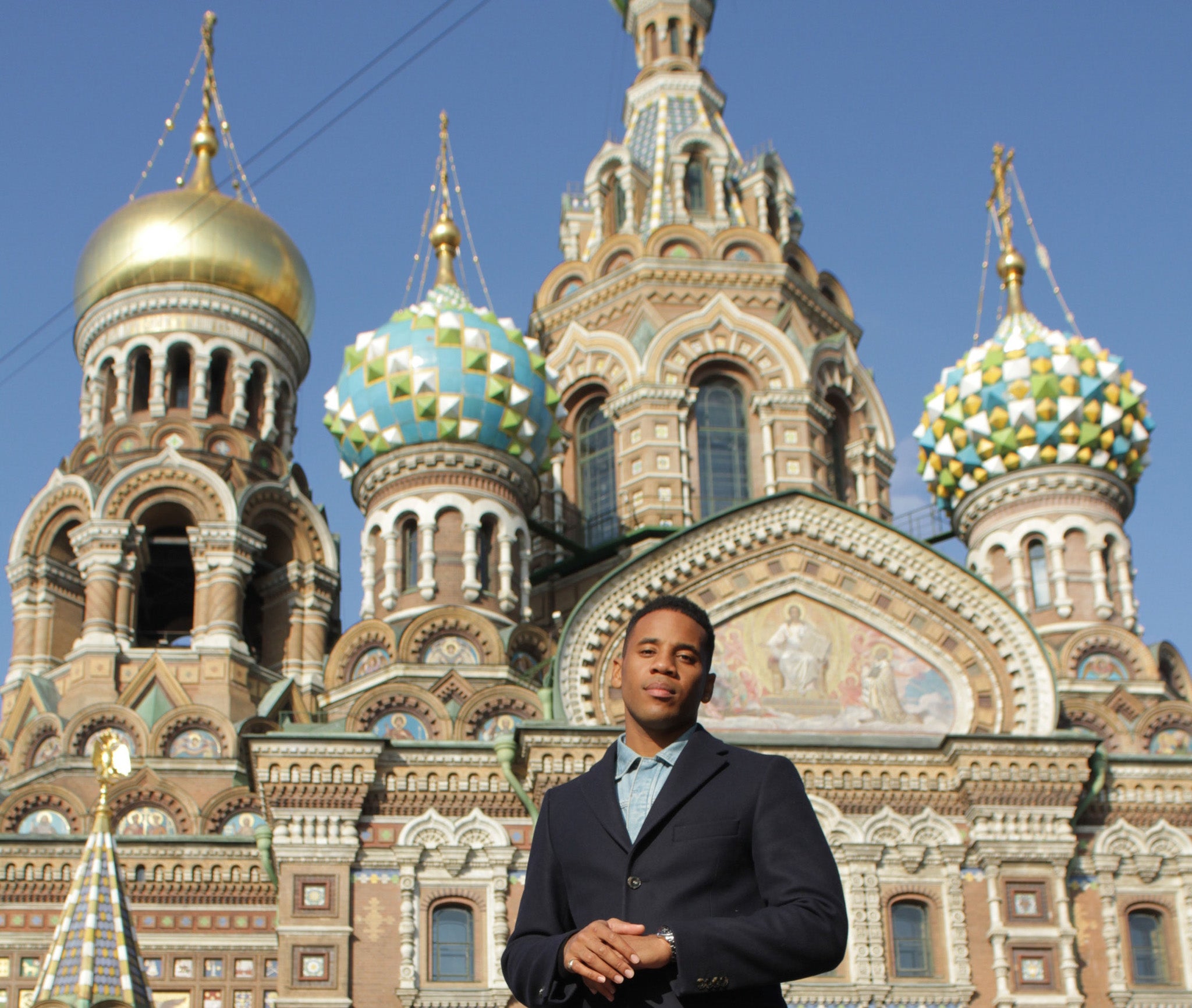Far Right and Proud: Reggie Yates' Extreme Russia, review: A timely look at Russia's recent wave of fervent nationalism
BBC3 documentary gives neo-Nazi propaganda too much air time

Former kids’ TV presenter Reggie Yates is making good on the promise shown in last year’s documentary series about South Africa with another intelligent and provocative three-parter. Far Right and Proud: Reggie Yates’ Extreme Russia was a timely look at Russia’s recent wave of fervent nationalism, which has taken hold particularly among the young.
His first stop was the Moscow headquarters of Set, a social media-savvy youth group that’s part-art collective, part-Putin fan club. If Yates hadn’t already guessed what they were about, the decor gave the game away. Every inch of wall space was adorned with images of the Russian leader – Putin on the ski slopes, Putin doing karate kicks and Putin being kind to the animals. “It’s actually animals that love him,” explained a young man in hipster specs and a Putin T-shirt. “They can feel he is a kind and strong person.” Riiiight…
While the Set mentality would strike most Brits as bizarre, their swooning was benign compared with Yates’ later encounters. He met and spoke with immigrants who had been subject to violent attacks by far-right groups, then eventually with Alexei, a 24-year-old member of one such group. Alexei took it upon himself to warn mixed-race Yates about the dangers of miscegenation. “If some sort of mixing happens, you’ll get God knows what,” he counselled. “In future, in the next generation, freaks could be born.” Faced with this abhorrent idiocy, Yates’ composure was impressive. He simply made his excuses and left.
But should good people remain composed in such situations? With the naturally amiable Yates at the helm, that question became the film’s central dilemma. His instinct seemed to be to smile, shake hands and look for common ground, but with Dmitry Demushkin, the ginger-bearded former leader of a banned neo-Nazi group, that turned out to be a tactical error. It became increasingly obvious that Demushkin was using his interactions with a BBC camera crew for his own propaganda purposes. And when that propaganda ultimately results in murder, you have to question whether the interview access is worth it.
Subscribe to Independent Premium to bookmark this article
Want to bookmark your favourite articles and stories to read or reference later? Start your Independent Premium subscription today.

Join our commenting forum
Join thought-provoking conversations, follow other Independent readers and see their replies